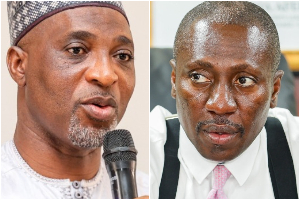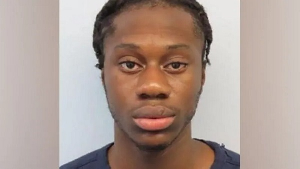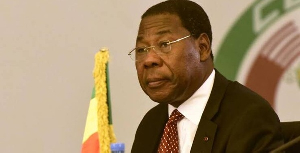By Kofi Ata, Cambridge, UK
I must confess that I have respect and admiration for the Accra based Institute of Economic Affairs (IEA). The institute since its establishment in 1989 has contributed immensely to strengthening democracy, good governance and accountability in Ghana through its exemplary work. However, I was troubled by some aspects of its Winner-Takes-All Advisory Committee’s recommendations that were reported on Ghanaweb on Thursday July 3, 2014 (see “IEA Advisory Committee makes recommendations”). In this brief article, I will try to analyse the specific recommendations and why they MUST be rejected outright.
I quote from the relevant sections of the recommendations. “IEA Winner-Takes-All Committee under the chairmanship of Archbishop Gabriel Charles Palmer-Buckle recommended the review of the appointing powers of the Executive President. It said the constitution must mandate the President to appoint people outside his party on merit and in proportion to the votes and electoral strength of the opposition parties into government”.
I find the first part of the above recommendation bizarre because the Committee failed to indicate any Articles or Clauses in the 1992 Constitution that prohibit the Executive President from appointing people into ministerial or other constitutional appointments from outside his/her party. Indeed, President Mahama has appointed ministers and other officials from outside the ruling NDC party and on merit such as the ministers of Education and Gender, Children and Social Protection. I also believe Ex-President Kufuor, the late Mills and probably Ex-president Rawlings all did. So what is the basis for the committee making such “not fit for purpose” recommendation? It is said that, “if ain’t broken, don’t fix it”.
What is more dangerous is the second part of the same recommendation. That is, “in proportion to the votes and electoral strength of the opposition parties into government”. To force coalition governments on Ghanaians on the basis of proportional representation is a disaster waiting to happen. It would be catastrophic to enshrine coalition governments into the constitution. I am not a constitutional law expert but most coalition governments are unsuccessful, characterised by bickering and infighting for power. By the 1992 Constitution, government in Ghana is not formed by the party with majority in parliament but by the elected executive president on simple majority of 50% plus one. So, why this illogical and party politically motivated recommendation? Has any presidential candidate since the Fourth Republic campaigned on forming a coalition government of proportional representation but failed to honour his campaign promise?
The recommendation smacks of unsuccessful political parties and politicians gaining executive powers through the back door. Whilst, I am not against inclusive governance, I am strongly opposed to constitutional coalition governments based on proportional representation. In fact, coalition governments formed by willing political parties, often the consequences of no single party wining overall majority in the legislature work better than forced coalition government as being proposed by the IEA Committee. Such coalition governments operate under parliamentary form of government which is different from the presidential system in Ghana. For example, in the UK, the leader of party with the overall majority in the House of Commons (parliament) forms the government and becomes the Prime Minister. When no party gained overall majority in the House at the 2010 general elections, that necessitated the Conservative Party which had the largest number of MPs to enter into a coalition government with the Liberal Democrats, the third party. The leader of the Conservative could have formed a minority government but decided not to. The two parties were not compelled into coalition by any constitutional requirement. There was a coalition agreement between the two parties over their individual party manifestos prior to the formation of the government. Despite the prior agreement the two parties in government still fight over policy implementation.
With the NDC and NPP in Ghana seeing each other as arch enemies, plotting and scheming to undo each other for no other purpose than gaining executive or political power, how the committee expects them to enter into a workable coalition government is anyone’s guess. What Ghanaians would end up with under this recommendation is a coalition government that argues over everything and anything and achieves nothing. A coalition government that the junior partners could scheme to undermine and sabotage the majority partner just for the sake of replacing them in government at the next elections is the route to political and economic instability that would lead to social upheavals in Ghana.
With a society that corruption is pervasive within the executive arm of government, how do Ghanaians expect the opposition parties to hold the executive accountable through the legislature if they are all part and parcel of executive? At least, with the current system, the NPP is able to and they do raise matters of executive corruption, incompetence and mismanagement in and outside parliament. For example, how could the minority leader in parliament, Hon Mensah Bonsu raise such matters if he were member of the Mahama government (as a minister)? This is particularly worrying when the legislature is ineffective in holding the executive accountable because the ruling party is also the majority in the legislature coupled with part of the executive being MPs.
Perhaps, the Committee is of the view that, had the Mahama led government been in the form of the proposed coalition government of proportional representation, then NPP would have at least, 40 percent of ministerial and other executive appointments and therefore the current economic mess would have been avoided. I reject such untried and tested hypothesis because they are all Ghanaians. I am not persuaded that the NPP has more qualified and management experts than the NDC. The evidence was at the Supreme Court petition hearing when both parties were represented by equally able and brilliant Attorneys.
What is being proposed by the Committee is dangerous and should be avoided at all cost. No form of coalition government, either by proportional representation or not should be enshrined into the Constitution unless the presidential system is changed to parliamentary form of government in Ghana. Even with parliamentary system, there is no need for coalition governments to be stipulated in the Constitution but must be left to the political parties to agree amongst themselves if they wish to enter into coalition governments after election or at any time.
A constitution is a document that must be treated with reverence and respect and not thinker with at any time to suit the parochial interests of any particular group. The exact form of government or perfect government that may suit Ghana cannot be dictated in the constitution and Ghanaians must tread with caution in an attempt to seek perfect constitutional government (if that ever existed). Coalition government/s must not be forced down the throats of either political parties, politicians or the electorate.
My personal view is that in the current democratic dispensation in Ghana, political parties and politicians do not have a better appreciation of party politics and democracy to be able to form successful and effective coalition governments. Party politics is too divisive and geared towards party political interests rather than the national interests for ‘forced’ coalition government to be realistic in Ghana. For these and others reasons, this particular IEA Winner-Takes-All Advisory Committee recommendation should be confined to the dustbins yesteryears of constitutional multi-party democracy. It’s tantamount to democratic coup d'état, confusion, anarchy and hostage taking.
Last but not the least, twenty years in a constitution’s life is not long enough practice for it to be tampered with just because some people do not like the current situation. Ghana or governments should avoid the practice of lustration, particularly when another political party assumes the reins of government after general elections but this cannot be achieved through constitutional fatwa, compulsion or coercion? Again, the elected Executive President should have the powers and the free hand to decide who should serve in his or her government and not be compelled to appoint and work with people s/he cannot trust or could even sabotage him or her.
On the other hand, I welcome the second recommendation for “the appointment of heads of professional bodies, independent constitutional bodies, Civil/Public Service and Members of Council of State must be done by independent constitutional bodies”, though I have reservation about heads of professional bodies. Are such heads not elected by their respective members (such as the Ghana Bar Association, Ghana Medial Association, etc.), unless I misunderstand what is meant by professional bodies? This would be a better means of achieving inclusive governance rather than inclusive government through forced proportional representation coalition government, which is a recipe for disaster.
NO, NO and NO. The IEA with all due respect must withdraw its Winner-Takes-All Advisory Committee’s “persona non grata” recommendations. The risks are not worth consideration. What do you think?
Kofi Ata, Cambridge, UK
Opinions of Friday, 4 July 2014
Columnist: Ata, Kofi














